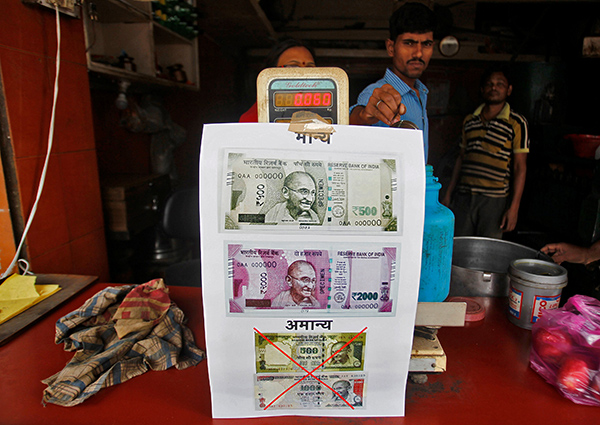NEW DELHI – A farmer in southern India committed suicide fearing she would be left penniless after the government’s shock decision to withdraw high denomination notes from circulation, police said Thursday.
Kandukuri Vinoda, 55, had a large amount of cash at her home in 1,000 and 500 rupee (S$20, S$10) notes and panicked that her savings had become worthless when she heard Prime Minister Narendra Modi’s surprise announcement on Tuesday.
“The family told us she panicked after hearing about the note ban and hanged herself at her home,” local police officer Raj, who only uses one name, told AFP.
Vinoda from Mahabubabad district, east of Hyderabad city, had sold some land last month and was paid around 5.5 million rupees for it in cash.
She used some of the money to pay for her husband’s medical bills and planned to use the rest to buy a new plot of land, local media reported.
Many Indians living in rural areas keep large amounts of cash at home because of a lack of banks in remote areas and to avoid paying taxes.
The withdrawal of the notes is part of Modi’s campaign against corruption and “black money”, and the government has tried to reassure worried citizens that only tax dodgers will suffer under the move.
Read also: India banks reopen to long queues after rupee withdrawal
Police in northern Uttar Pradesh state said they were investigating reports that people were burning off sacks of notes to avoid declaring them and being landed with heavy penalities.
“We have sent the samples for forensic tests and asked bank authorities to authenticate these are currency notes,” police chief of Bareilly district Joginder Singh told AFP.
Earlier this year, the government ran a four-month tax amnesty, which saw Indians declare nearly US$10 billion (S$14 billion) in hidden wealth.
But the scheme ended last month and anyone now depositing large amounts of cash could face a bill of up to 200 per cent in back taxes.





